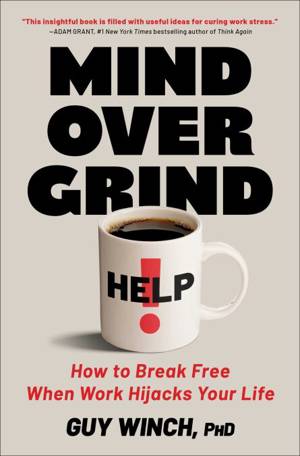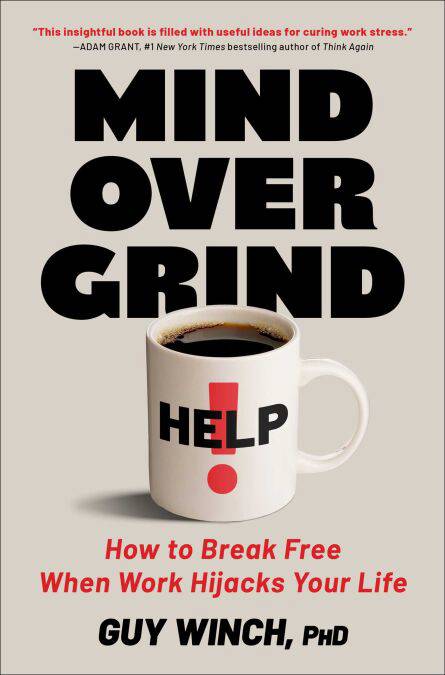
- Afhalen na 1 uur in een winkel met voorraad
- Gratis thuislevering in België vanaf € 30
- Ruim aanbod met 7 miljoen producten
- Afhalen na 1 uur in een winkel met voorraad
- Gratis thuislevering in België vanaf € 30
- Ruim aanbod met 7 miljoen producten
Zoeken
€ 16,76
+ 16 punten
Omschrijving
Clinical psychologist, TED Speaker, and author of Emotional First Aid offers a guide to combating the many stresses modern work imposes, based on recent research and the stories of clients Winch has helped to thrive in the relentless grind of today’s workplace.
Whether we like it or not, work is central to our lives. Most of us define ourselves by our work; it gives us a purpose, it enables us to maintain our lives, our homes, our nourishment, our recreational pursuits, and it puts us often among like-minded people who share and appreciate our skills and achievements. No wonder we feel it is so important. But the dark side is that it intrudes on our lives and unconsciously takes over our thoughts, our priorities, and even our coping mechanisms. Especially in recent years, the separation between work and home is blurrier than ever, and we struggle to maintain healthy boundaries, to restore ourselves and recover our attention and energy, to give due focus to our loved ones, and to nourish other essential aspects of our self.
In Mind Over Grind, Guy Winch explains how our enmeshment with work reinforces these unconscious tendencies and reveals the damage they do to our careers and personal lives, as well as to our emotional health. He argues that attaining a work-life balance involves changing how you think both at work and at home. And he offers clear, practical strategies we can use to regain control, change our mindset, and be more intentional, so we can excel at work and flourish in our personal lives.
Whether we like it or not, work is central to our lives. Most of us define ourselves by our work; it gives us a purpose, it enables us to maintain our lives, our homes, our nourishment, our recreational pursuits, and it puts us often among like-minded people who share and appreciate our skills and achievements. No wonder we feel it is so important. But the dark side is that it intrudes on our lives and unconsciously takes over our thoughts, our priorities, and even our coping mechanisms. Especially in recent years, the separation between work and home is blurrier than ever, and we struggle to maintain healthy boundaries, to restore ourselves and recover our attention and energy, to give due focus to our loved ones, and to nourish other essential aspects of our self.
In Mind Over Grind, Guy Winch explains how our enmeshment with work reinforces these unconscious tendencies and reveals the damage they do to our careers and personal lives, as well as to our emotional health. He argues that attaining a work-life balance involves changing how you think both at work and at home. And he offers clear, practical strategies we can use to regain control, change our mindset, and be more intentional, so we can excel at work and flourish in our personal lives.
Specificaties
Betrokkenen
- Auteur(s):
- Uitgeverij:
Inhoud
- Aantal bladzijden:
- 272
- Taal:
- Engels
Eigenschappen
- Productcode (EAN):
- 9781668069356
- Verschijningsdatum:
- 9/02/2026
- Uitvoering:
- E-book
- Beveiligd met:
- Adobe DRM
- Formaat:
- ePub

Alleen bij Standaard Boekhandel
+ 16 punten op je klantenkaart van Standaard Boekhandel
Beoordelingen
We publiceren alleen reviews die voldoen aan de voorwaarden voor reviews. Bekijk onze voorwaarden voor reviews.







